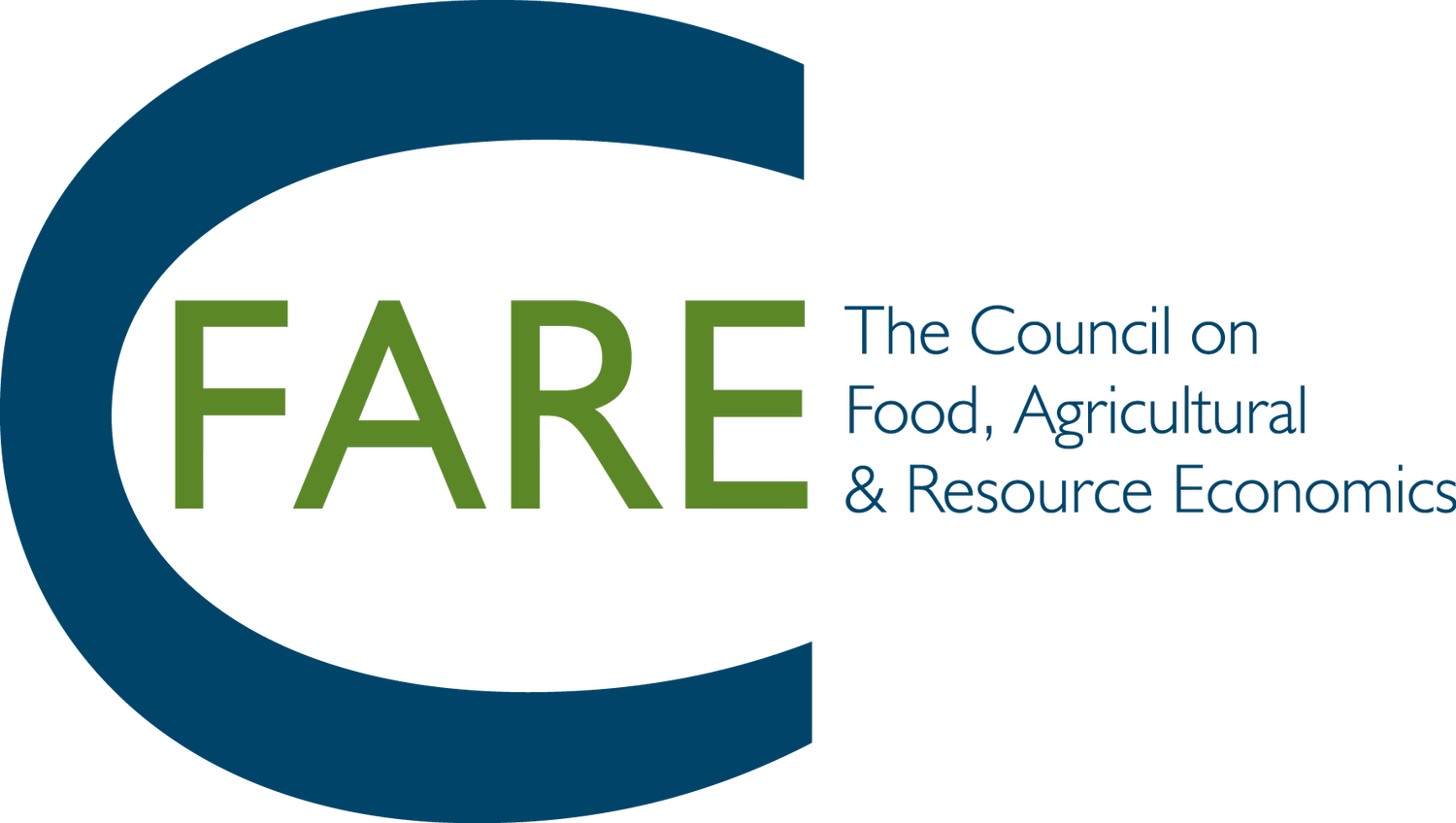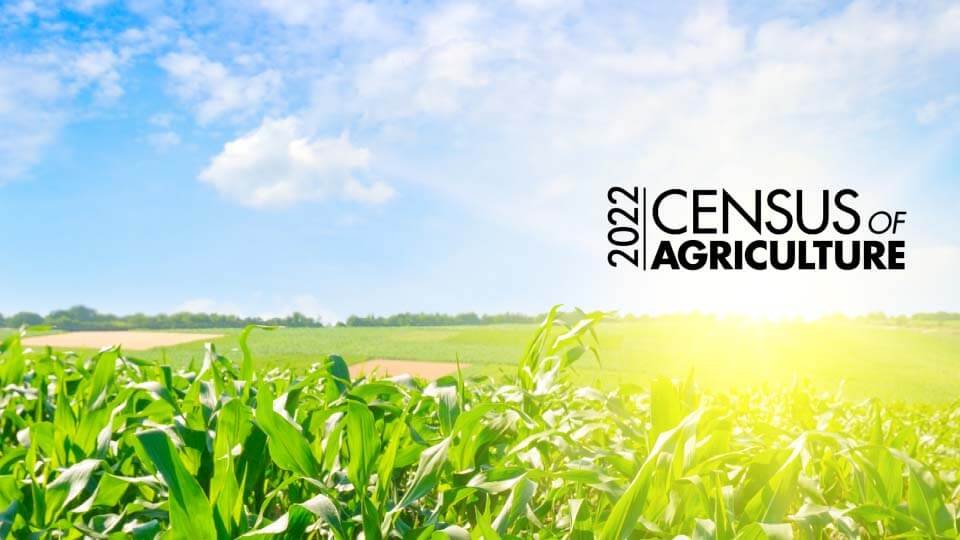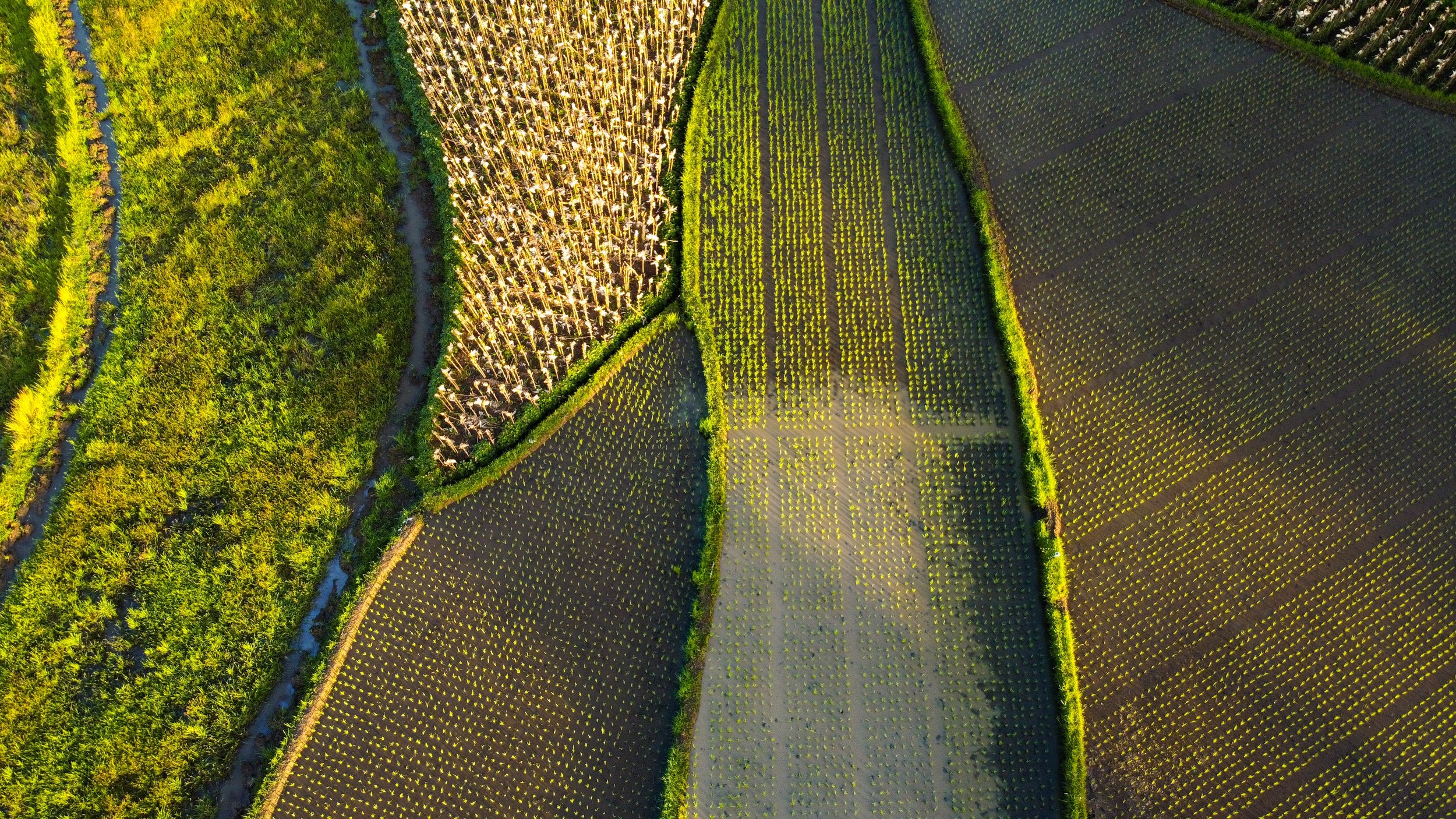Happy Hour at the AAEA Annual Meeting
On July 28, C-FARE hosted a happy hour to share coffee and an interactive, informal discussion with ERS and NASS's administrators during the AAEA Annual Meetings.
C-FARE and AAEA: A Collaboration that Enhances our Value to Policy Makers
In the July webinar we communicate about some of the topics that will be showcased at the AAEA annual meetings in New Orleans July 28-30, 2024. The current AAEA president will provide an overview of the expertise of the membership, we will hear about climate change impacts on agriculture from a distinguished fellow, and two AAEA members will discuss highlights of a session on food waste, and a workshop on food prices.
Benefits and Risks of A.I. and Digitization in Agriculture
The National Institute for Food and Agriculture (NIFA) of USDA highlights the many promises of AI and digitization in Agriculture…
Opportunities for Climate-Smart Feedstocks in Transportation Fuels
On January 25 and 26, 2024, C-FARE hosted a workshop in Washington, D.C. This workshop aimed to explore the technical, policy, and economic opportunities and challenges in incorporating soil carbon impacts of farming practices in the CI scores of biofuels as a mechanism for incentivizing farmers to adopt these practices.
GSS & C-FARE 2024 Policy Communications Competition
In today’s market, graduate students may seek careers where they are tasked with evaluating policy issues and effectively communicating their results to policymakers and other stakeholders. Therefore, the Graduate Student Section (GSS) and Council on Food, Agricultural & Resource Economics (C-FARE) partner for the 4th Annual Policy Communications Competition. This competition provides graduate students with an opportunity to gain experience in both written and verbal policy communication.
An Introduction to the 2022 Census of Agriculture
In February 2024, the U.S. Department of Agriculture’s (USDA) National Agricultural Statistics Service (NASS) announced the results of the 2022 Census of Agriculture, spanning more than 6 million data points about America’s farms and ranches and the people who operate them down to the county level.
Incorporating Natural Capital into Economic Decision Making
On Earth Day, 2022, President Biden made protecting and restoring nature and using nature-based solutions a core tenant of U.S. national Policy by signing Executive Order 14072, Strengthening the Nation’s Forests, Communities, and Local Economies.
Climate Smart Agriculture
The U.S. Department of Agriculture is investing over $3.1 billion in 141 selected projects under the Partnerships for Climate-Smart Commodities. Commodities include crops, animal agriculture, and forest products. These projects will reach 60,000 farms covering 25 million acres of working land.
An Introduction to the New USDA Regional Food Centers
USDA announced the funding of 12 USDA Regional Food Business Centers. These Centers will support a more resilient, diverse, and competitive food system by providing localized assistance to access local and regional supply chains, including linking producers to wholesalers and distributors. They will also provide technical assistance needed to access new markets, access to federal, state, and local resources, and will assist small- and mid-sized producers in overcoming barriers to market access, with a focus on underserved farmers, ranchers, and food businesses.
Big Data: Background and Applications used in Agriculture and Food Systems
Volume, velocity, variety, and veracity are descriptors of big data. Remote sensing, geospatial, Census and supermarket scanner data are only a few examples of big data. Accessibility, quality and security are challenges associated with big data. Higher yields and better matching of product to consumer demand are two outcomes from research using big data.
Alternative Fuels and Policies to Lower their Carbon Intensity
We delve into the role of policies to increase the climate benefits of biofuels and Sustainable Aviation Fuels and contribute to rural communities’ economic viability. This webinar discusses the opportunities for increasing the climate benefits of these fuels and the effectiveness of using carbon intensity score-based policies to induce the adoption of climate-smart practices -- practices that increase biological carbon sequestration — by farmers producing feedstocks for these fuels.
Brandt Forum Fall 2023: Opportunities and Challenges for US Agriculture and the Environment Part II
While economists recommend using market incentives, there is the widespread use of regulation to achieve agricultural and environmental resource management objectives. This workshop explores new vantage points to explain this reality, emphasizing political economy, irreversibility, and supply chain perspectives.
Food Hubs and Farm to School: Policy and Impact Across the Food System
The October C-FARE webinar highlights two “almost direct to consumer” food distribution models. Our four panelists representing government (USDA) and research (University) discuss policy and marketplace impacts of Farm to School and Food Hubs. Both of these models of food system intermediaries reach across the food system from farm production through distribution to the consumer, whether that be an institution or an individual.




















